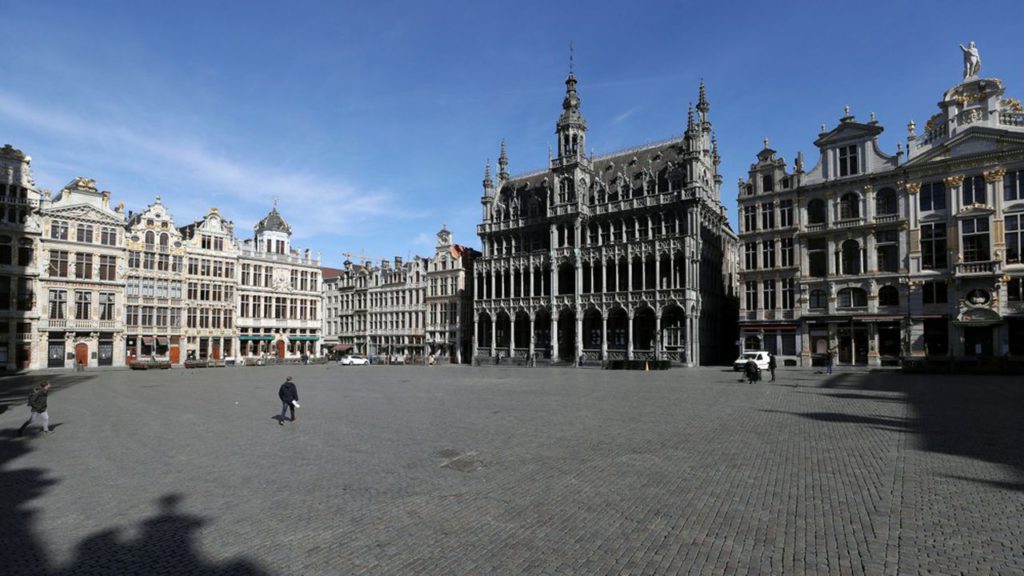We have risked a lot for the sake of freedom. Wars were fought over it, with entire communities decimated, lives destroyed, economies on the verge of collapse.
World War Two would have never started if in September 1939 Poland had agreed to surrender to Hitler’s desire to invade it. Neither would have the Civil War in the United States in 1861, which placed the morality of slavery at its center.
Conflict-ridden times force us to take a reflective standpoint, to go beyond ourselves and see the world with new eyes. Fighting for a common cause and the quest for freedom, independence, autonomy create a sense of unity that cultivate virtues, such as selflessness, courage, discipline.
The 19th century American philosopher William James went as far as to say in a 1910 essay entitled “The Moral Equivalent of War” that: “If war ever stops, we will have to reinvent it to redeem life from flat degeneration.” He was though not a proponent of bloodsheds or devastating hostilities, on the contrary, he was looking for a ‘moral equivalent of war’, another way to bring to the surface the positive virtues of war that strengthen a person’s character and draw us closer to each other.
Freedom is a universal value that should always be part of our public discourse. If we ignore it, we risk slipping into a totalitarian society. But is freedom the supreme value, the highest value of all, the starting point and the end point?
John Locke (1632-1704) was one of the first philosophers who defended individual freedom to the core. He was known as the “Father of Liberalism”. We are born free, he said, and in a state of nature, where political power or authority is inexistent, we enjoy ‘perfect freedom’, that is, we act according to how we ‘think fit’.
Even so, Locke added, freedom does not exist on its own, but it is restricted by us not harming the other in ‘his life, health, liberty, or possessions.’ Freedom thus becomes interpersonal, it takes on a social form. In other words, you are free, but if you live in a community you cannot do whatever you want.
Government intervention and the golden mean
It is at this juncture, when individual desires and needs collide, that Locke highlights the necessity of a government to intervene, to guarantee an equal protection of our freedoms, so as to avoid the harm we could do to each other. Laws are not meant to winnow out freedom, on the contrary, they are meant to “preserve and enlarge” it.
The virus war seems to sow discord among us. We have a common enemy, but we do not tend to be united in fighting the virus. We rather prefer to disconnect from each other, with some vigorously defending personal freedom whereas the others prioritizing public health.
Heavyweight words such as responsibility, pleasure, fear, life, authority, dictatorship, freedom, all abound in private and public debates. Do we overstep our freedom if we wear masks and practice social distancing in order to protect the most vulnerable in our society?
Or should we not give in to authority so as to live a pleasurable and happy life according to our needs and desires?
Both Aristotle and Epicurus agree that the pursuit of happiness is the highest good, disagreeing slightly on what this entails. For Aristotle, happiness is leading a virtuous life within society, always searching for moderation and temperance in everything we do.
When you want to ensure justice or a fair treatment of others, choose the golden mean between self-interest and a selfless surrender to others’ needs, he would say.
Even Epicurus, known as the eternal hedonist, argued for a modest enjoyment of pleasure. Extreme, unbridled pleasures, totally dependent on one’s desires, can only bring anxiety and pain in time, so these are to be avoided. According to him, the highest pleasure of all is to engage in intellectual pursuits with others. Go figure!
Aristotle believed that we are inherently social animals. We seek out the company of others and we need society to thrive. Even anarchists, who lambast hierarchy and governmental power, acknowledge that personal freedom is intertwined with social freedom because we need to cooperate with others and reach a consensus in order to bypass societal collapse.
What are we to do? Probably search for the equilibrium the humanitarian Marie Curie aimed for when she said that: “Each of us must work for his own improvement, and at the same time share a general responsibility for all humanity, our particular duty being to aid those to whom we think we can be most useful.” Some words of wisdom in these times of hardship, now when we need each other more than ever.
By Margareta Hanes

